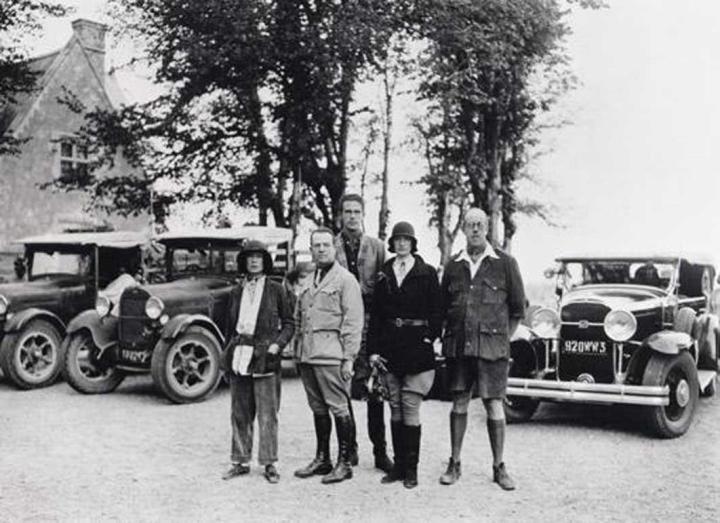
Bedaux Canadian subarctic expedition
The Bedaux Canadian subarctic expedition has been described as one of the strangest journeys in the history of modern exploration. The brainchild of Charles Bedaux, a French-born naturalized American millionaire, it centred on an implausible scheme to drive five Citroen half-tracks and fifteen tonnes of supplies--including bottles of champagne and candied fruits--through the Rocky Mountains to the Pacific Ocean, following a trail that had not been attempted since Alexander Mackenzie in 1793. Bedaux was to be accompanied by an eclectic entourage that included: his wife, Fern; an Italian countess thought to be his mistress; an Academy-award winning Hollywood cameraman; a Swiss skiing instructor; a host of wranglers and cowboys; a dental student; an unemployed bush pilot; guides; geologists; and a British Columbia provincial surveyor.








